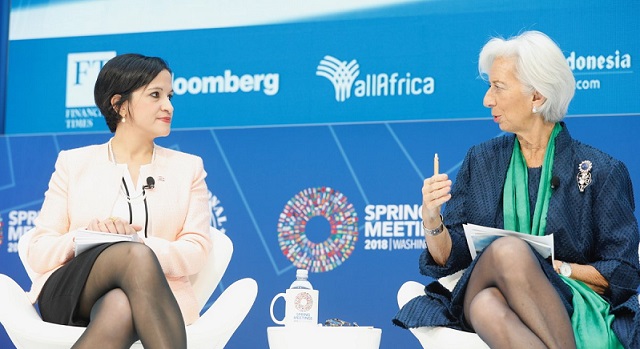
Washington, United States | AFP | The International Monetary Fund will systematically address corruption and its impact on economic growth with all its member countries under new guidelines launched on Sunday.
The stricter new policy also aims to tackle how rich countries contribute to corruption in the developing world by failing to prevent bribery and money laundering or by allowing anonymous corporate ownership.
“We know that corruption hurts the poor, hinders economic opportunity and social mobility, undermines trust in institutions and causes social cohesion to unravel,” IMF Managing Director Christine Lagarde said in a statement.
“We have now adopted a framework for enhanced engagement on governance and corruption that aims for a more systematic, evenhanded, effective and candid engagement with member countries.”
Corruption and poor governance sap economic growth and exacerbate inequality, according to the IMF, and the new policy framework attempts to ensure the institution will hold all members to the same standards — something the fund said it had not always done.
The new policy comes as Ukrainian authorities work to implement stringent new anticorruption reforms at the behest of the IMF, which has held up the latest instalment of a $17.5 billion aid package.
The revised good governance guidelines, which take effect on July 1, follow a recent review of the IMF’s 20-year-old policy framework which concluded the fund had sometimes employed euphemisms when discussing corruption in member states — leaving local officials unclear about IMF concerns.
– ‘More intrusive’ –
And IMF analysis sometimes failed to apply the same standards evenly to all members.
Under the new guidelines approved by the IMF board on April 6, the fund will discuss good governance concerns in all annual economic reviews of member countries.
IMF officials however say they do not expect the policy will lead to more stringent conditions on loans, which go to a minority of the fund’s 189 members and which already include anti-corruption provisions.
The fund also will rely on the findings of outside transparency campaigners who have criticized the existence of tax and corporate havens in advanced economies as a conduit for illicit financial flows to and from poorer countries.
However, the IMF will not investigate specific instances of corruption.
Rather, it will focus on the strength of key economic institutions: fiscal and central bank governance, market regulation, the rule of law and policies on money laundering and countering terrorism financing.
IMF analysis suggests falling 25 notches on a corruption index could shave as much as 0.5 percentage points off a country’s annual growth — amounting to tremendous economic losses over multiple years.
In unveiling the new policy on Sunday at the close of the IMF-World Bank spring meetings, Lagarde said the fund’s board supported a “more intrusive” approach to member state evaluations.
“Because it is a macroeconomic issue, the IMF is really perfectly legitimate in acting, especially when we have a program in a country,” she said.
 The Independent Uganda: You get the Truth we Pay the Price
The Independent Uganda: You get the Truth we Pay the Price



